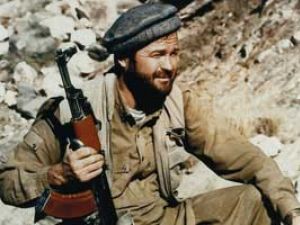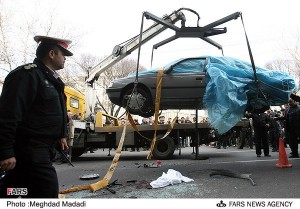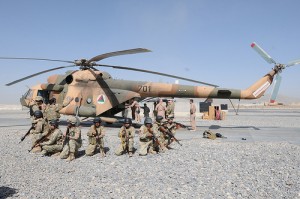Obama’s Commitment to Atrocities Prevention Lasts Less than 3 Weeks
Remember how Obama rolled out a campaign to prevent atrocities three weeks ago? “Never again”?
The other day, here’s how the Vice President expressed that fierce commitment to preventing atrocities in a meeting with a man whose country has been committing them. (This is the White House readout of the meeting.)
Vice President Biden met this afternoon with Crown Prince Salman Bin Hamad Al Khalifa of Bahrain. The Vice President reaffirmed the United States’ commitment to our long-standing partnership with the Government of Bahrain and discussed with the Crown Prince steps to strengthen those ties. The Vice President expressed concern about the recent escalation of street violence, including attacks against security forces. The Vice President also underscored the importance of ensuring fundamental rights for all Bahrainis and the need for greater progress by the government on accountability for past abuses, police reform and integration, and inclusive political dialogue.
And where the readout says “the Vice President reaffirmed the US commitment to our long-standing partnership” with this atrocity committing state? That translated into the announcement that the US was going to sell weapons to Bahrain.
The Obama Administration no doubt knows how bad this looks. Josh Rogin says one point of this weapon sale is to buck up the Crown Prince’s power within the Bahrani regime.
“The administration didn’t want the crown prince to go home empty-handed because they wanted to empower him,” said Tom Malinowski, the Washington director of Human Rights Watch, who was arrested in Bahrain while documenting protests there last month. “They placed a lot of hope in him, but he can’t deliver unless the king lets him and right now the hard-liners in the ruling family seem to have the upper hand.”
The crown prince has been stripped of many of his official duties recently, but is still seen as the ruling family member who is most amenable to working constructively with the opposition and with the United States. It’s unclear whether sending him home with arms sales will have any effect on internal Bahraini ruling family politics, however.
But while the Crown Prince met with Obama’s most important cabinet members–in addition to Biden, Leon Panetta and Hillary Clinton–there’s no public hint Obama met with him personally (Obama was busy campaigning for part of the time), which might have raised his stock but would tie Obama more closely to this decision.
The State Department insists that none of the weapons they’re selling (of which they have provided no public list–you’ll just have to trust them) can be used for “crowd control.” Less explicit, though clearly understood by all, is that these arms will target–um, defend Bahrain from–Iran. CNN’s sources talk about interoperability. And State Departments officials who, at a briefing, connected this arms sale to the Strategic Cooperation Forum–basically a closer military cooperation between the GCC and the US which Hillary rolled out at the end of March in Riyadh. At that meeting, Hillary explicitly tied “interoperability” to Iran.
In today’s inaugural session of the Strategic Cooperation Forum, I underscored the rock-solid commitment of the United States to the people and nations of the Gulf. And I thanked my colleagues for the GCC’s many positive contributions to regional and global security, particularly the GCC’s leadership in bringing about a peaceful transition within Yemen. We hope this forum will become a permanent addition to our ongoing bilateral discussions that exist between the United States and each nation that is a member of the GCC. We believe this forum offers opportunities to deepen and further our multilateral cooperation on shared challenges, including terrorism, nuclear proliferation, and piracy, as well as broader economic and strategic ties.
Among other things, it should help the American and GCC militaries pursue in concert a set of practical steps, such as improving interoperability, cooperating on maritime security, furthering ballistic missile defense for the region, and coordinating responses to crises. Let me turn to a few of the specific challenges facing the region that we discussed.
I will start with Iran, Read more →




